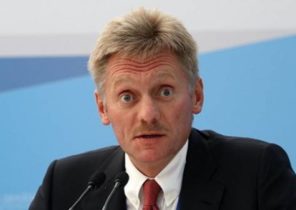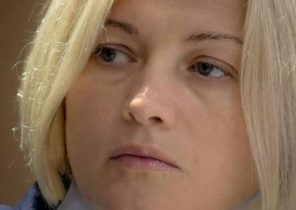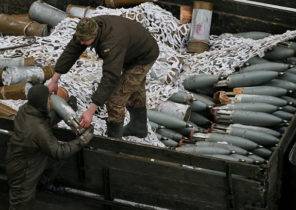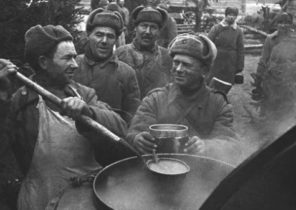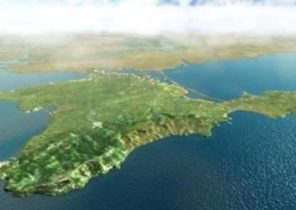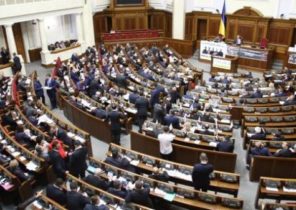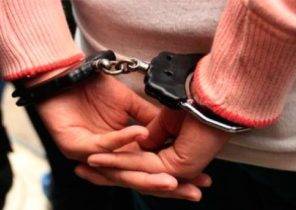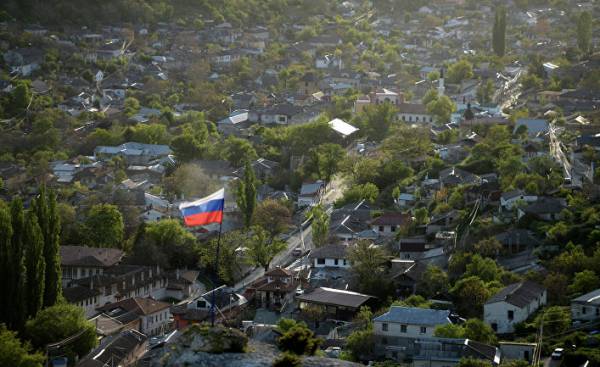
Three years ago, in late February 2014, the Kremlin had embarked on the annexation of Crimea. Arrange it so that the transition of the Peninsula under Russian control was recognized by the world community failed. Despite declarations of “geopolitics”, which regarded the Crimea solely as a strategically important military base, it has not led to strengthening of defensibility of the Russian Federation.
Recognition
The first target of the Kremlin after the annexation of the Crimea, of course, was the international recognition of the new status of the Crimea and city of Sevastopol. The Russian authorities do not hide the fact that “play long”. And indeed, after the referendum in Crimea, which — in the presence of Russian troops — the majority of Crimeans voted for joining Russia, it’s been nearly three years. The results of this national vote of anyone not recognized, including even the closest Russian allies.
Another task was to achieve recognition from the widest possible range of politicians and leaders of public opinion in the West. However, the failure here. Although the circle of sympathizers of Moscow are wide, they are in no hurry with loud statements. The same Czech President Milos Zeman moderately positive in their evaluations of referendum and recognition of its results never came. Donald trump, who in the Kremlin has pinned its hopes of many, called to return the Crimea to Ukraine. Moscow left to enjoy except the fact that on her side right-wing candidate for the French presidency, marine Le Pen.
The only thing, perhaps, failed to convince a significant part of the Western establishment is that to return the Peninsula to Ukraine now will be difficult, even if Russia and went for it. Because in Kiev there are “tenured radicals” who claim to want to cleanse the Crimea from the “quilted jackets”. The West’s new humanitarian disaster is not needed.
Overcoming the effects
The actual lack of success in the recognition of the Russian status of Crimea, quite possibly, due to the fact that it failed to turn in an attractive “showcase” of Russia. Even according to official Russian statistics, we cannot say that the Peninsula is now living much better than before 2014. A bridge to the Crimea unfinished roads as there was not, but the arrests on charges of corruption on the Peninsula — the usual case.
Monstrous any normal person would recognize and attempt to divert the attention of the world and the Ukrainian community of the Crimea, through the destabilization of the situation in the East of Ukraine. Thousands of dead, more than half a million refugees, most of whom — Russian speakers, which Russia is supposedly trying to protect — not too great a price for the distraction of the Kremlin cynics? In addition, there were two puppet unviable quasi-state, the fate of which, apparently, will have to solve for decades.
In parallel, Russia has overcome the consequences of the introduction of Western sanctions against the country and against private companies and individuals. In Moscow, of course, happily report that the anti-sanctions cause the same harm the EU almost more. But in reality, the problems of technological backwardness and the difficulties of lending to the economy remain. And despite his bravado, every six months, the Kremlin informal channels trying to achieve, if not abolition, at least a partial revision of the sanctions. Also, I must say, to no avail.
Geopolitical triumph?
After the annexation of Crimea, Moscow has set a goal of, directly or indirectly associated with the West. To achieve most of them failed, says political analyst Ivan Preobrazhensky.
Three years ago, in late February 2014, the Kremlin had embarked on the annexation of Crimea. Arrange it so that the transition of the Peninsula under Russian control was recognized by the world community failed. Despite declarations of “geopolitics”, which regarded the Crimea solely as a strategically important military base, it has not led to strengthening of defensibility of the Russian Federation.
Recognition
The first target of the Kremlin after the annexation of the Crimea, of course, was the international recognition of the new status of the Crimea and city of Sevastopol. The Russian authorities do not hide the fact that “play long”. And indeed, after the referendum in Crimea, which — in the presence of Russian troops — the majority of Crimeans voted for joining Russia, it’s been nearly three years. The results of this national vote of anyone not recognized, including even the closest Russian allies.
Another task was to achieve recognition from the widest possible range of politicians and leaders of public opinion in the West. However, the failure here. Although the circle of sympathizers of Moscow are wide, they are in no hurry with loud statements. The same Czech President Milos Zeman moderately positive in their evaluations of referendum and recognition of its results never came. Donald trump, who in the Kremlin has pinned its hopes of many, called to return the Crimea to Ukraine. Moscow left to enjoy except the fact that on her side right-wing candidate for the French presidency, marine Le Pen.
The only thing, perhaps, failed to convince a significant part of the Western establishment is that to return the Peninsula to Ukraine now will be difficult, even if Russia and went for it. Because in Kiev there are “tenured radicals” who claim to want to cleanse the Crimea from the “quilted jackets”. The West’s new humanitarian disaster is not needed.
Overcoming the effects
The actual lack of success in the recognition of the Russian status of Crimea, quite possibly, due to the fact that it failed to turn in an attractive “showcase” of Russia. Even according to official Russian statistics, we cannot say that the Peninsula is now living much better than before 2014. A bridge to the Crimea unfinished roads as there was not, but the arrests on charges of corruption on the Peninsula — the usual case.
Monstrous any normal person would recognize and attempt to divert the attention of the world and the Ukrainian community of the Crimea, through the destabilization of the situation in the East of Ukraine. Thousands of dead, more than half a million refugees, most of whom — Russian speakers, which Russia is supposedly trying to protect — not too great a price for the distraction of the Kremlin cynics? In addition, there were two puppet unviable quasi-state, the fate of which, apparently, will have to solve for decades.
In parallel, Russia has overcome the consequences of the introduction of Western sanctions against the country and against private companies and individuals. In Moscow, of course, happily report that the anti-sanctions cause the same harm the EU almost more. But in reality, the problems of technological backwardness and the difficulties of lending to the economy remain. And despite his bravado, every six months, the Kremlin informal channels trying to achieve, if not abolition, at least a partial revision of the sanctions. Also, I must say, to no avail.
Geopolitical triumph?
In Moscow it is accepted to speak, which pribiraâ Crimea, Russia was only defending himself from the United States and NATO. Its purpose was to weaken the influence of Americans on European Affairs, and at the same time the North Atlantic Alliance. And is one of the points where we can say, the Kremlin was lucky: the course Donald trump on isolationism led to a weakening of cooperation between the US and the EU.
As for NATO, the Russian conspiracy theorists are not just strengthened, and almost saved. The Alliance was going through a difficult time due to the fact that was not suited to combat international terrorism. Other serious threats are simply not there. And here such luck — the aggression of Russia. In the end, funding a military Alliance grows, its battalions deployed to the borders of the Russian Federation. Even little Montenegro is eager to join NATO, despite the extremely tough Russian pressure, up to the alleged attempt of organizing a coup d’etat.
The results
Thus, for three years has not solved virtually none of the goals of those who set themselves the Kremlin after the annexation of Crimea. This, of course, not a complete defeat of the Russian policy, as adopted by the West steps in order to force Moscow to give in, also proved ineffective. But that “Putin outplayed all” speak is clearly not necessary.

